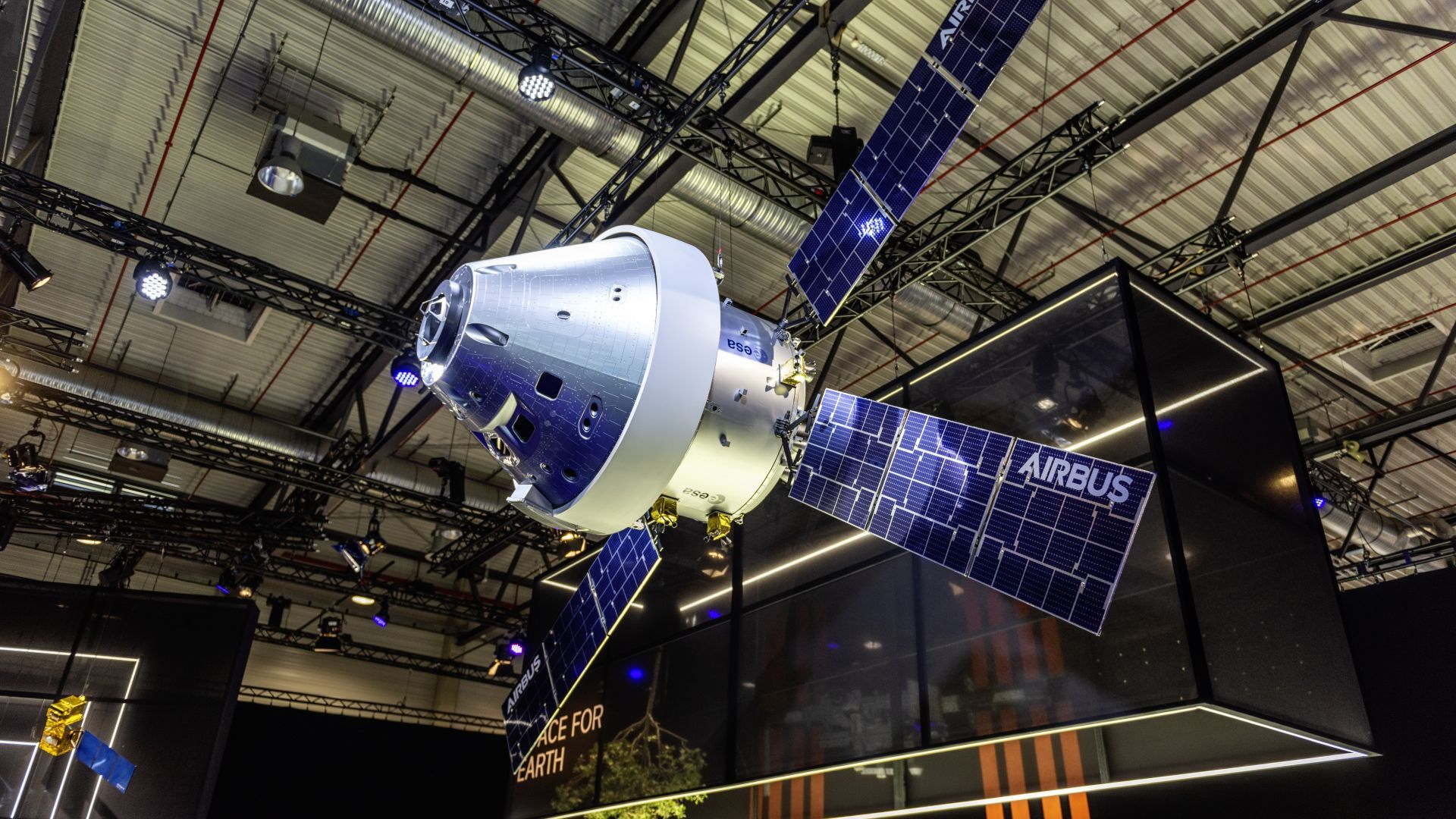World
European Aerospace Giants Unite to Challenge Musk’s Starlink

Three prominent European aerospace and defense companies, Airbus, Thales, and Leonardo, have signed a memorandum of understanding (MOU) to merge their space units into a single entity. Announced on October 23, 2025, this agreement marks a significant strategic shift as these firms aim to enhance their competitiveness in the global space and satellite connectivity market, directly challenging Elon Musk’s Starlink initiative.
The merger will integrate satellite manufacturing, launch capabilities, ground infrastructure, and service provision, creating a vertically integrated entity poised to deliver high-throughput broadband, Internet of Things (IoT) connectivity, and secure government communications on a larger scale. With Starlink already operating thousands of satellites, this alliance plans to leverage Europe’s robust industrial base and regulatory framework to gain market share.
Details of the Merger
The collaboration, codenamed Project Bromo, will combine the space divisions of Airbus, Leonardo’s Defense and Space division, and Thales Alenia Space operations. The discussions began in 2024, culminating in the formal MOU announced recently. The agreement outlines governance structures, ownership stakes, and a pathway for consolidation over the next 12 to 18 months.
Currently, Thales has a joint venture with Leonardo known as Thales Alenia Space, which is the second-largest industrial partner on the International Space Station. This merger aims to create a unified entity that can effectively compete with established players like SpaceX and Starlink. One of the major objectives is to deliver high-capacity broadband to remote regions, maritime areas, and government clients, where Starlink has already established a presence.
Motivations Behind the Alliance
The emergence of Starlink, a subsidiary of SpaceX, has transformed the satellite industry by deploying extensive low-Earth-orbit (LEO) constellations. This disruption has raised concerns among traditional satellite operators who fear diminishing roles in the market. The merger reflects a proactive approach by European aerospace firms to avoid being sidelined.
Guillaume Faury, CEO of Airbus, emphasized the urgency of the merger, noting the rapid changes within the space sector. He stated that combining resources is not merely about avoiding losses; it is also about adapting to future market demands with greater modularity, quicker production times, and increased agility. Furthermore, Europe is striving for greater independence in its space missions, reducing reliance on SpaceX, which has been favored for its lower operational costs. A singular, large European entity could offer competitive prices due to its scale, potentially diminishing European dependency on U.S. firms.
Challenges Ahead for the Partners
With the MOU officially signed, the next step involves obtaining regulatory approval. Historically, consolidation efforts in the aerospace and defense sectors have faced hurdles due to concerns regarding market dominance and national strategic interests. Faury expressed that convincing regulators of the necessity for this alliance to maintain competitiveness will be a complex task.
Additionally, the three companies face the challenge of aligning their distinct product lines and national obligations. They must strategize on which segments to merge while balancing research and development priorities, government programs, and corporate cultures. Harmonizing these differences will be crucial for the success of the merger.
Financially, Airbus has already faced considerable challenges in its space division, with projects such as OneSat, a reprogrammable GEO satellite initiative, experiencing significant cost overruns. The hope among the partners is that the scale of the merged entity will enable more cost-effective solutions and enhance their competitive stance against American rivals.
As this merger unfolds, the global aerospace and satellite landscape may witness a shift, with the potential for increased competition and innovation in delivering satellite-based services.
-

 Health2 months ago
Health2 months agoNeurologist Warns Excessive Use of Supplements Can Harm Brain
-

 Health2 months ago
Health2 months agoFiona Phillips’ Husband Shares Heartfelt Update on Her Alzheimer’s Journey
-

 Science5 days ago
Science5 days agoBrian Cox Addresses Claims of Alien Probe in 3I/ATLAS Discovery
-

 Science3 days ago
Science3 days agoNASA Investigates Unusual Comet 3I/ATLAS; New Findings Emerge
-

 World2 months ago
World2 months agoCole Palmer’s Cryptic Message to Kobbie Mainoo Following Loan Talks
-

 Entertainment3 months ago
Entertainment3 months agoKerry Katona Discusses Future Baby Plans and Brian McFadden’s Wedding
-

 Entertainment3 months ago
Entertainment3 months agoEmmerdale Faces Tension as Dylan and April’s Lives Hang in the Balance
-

 Entertainment3 months ago
Entertainment3 months agoLove Island Star Toni Laite’s Mother Expresses Disappointment Over Coupling Decision
-

 Entertainment2 months ago
Entertainment2 months agoMajor Cast Changes at Coronation Street: Exits and Returns in 2025
-

 World2 months ago
World2 months agoCoronation Street’s Asha Alahan Faces Heartbreaking Assault
-

 Lifestyle2 months ago
Lifestyle2 months agoEngland Flags Spark Controversy This Summer: A Cultural Debate
-

 Entertainment2 weeks ago
Entertainment2 weeks agoStefan Dennis and Dianne Buswell Share Health Update on Strictly Come Dancing









